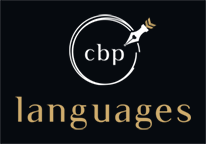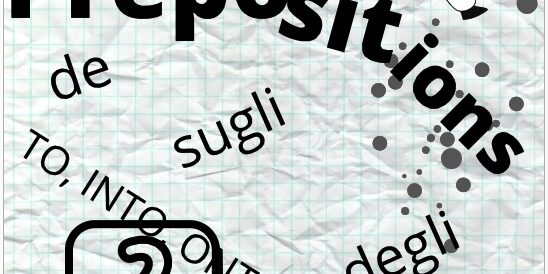When I ask students about their least loved grammar-related topic in the language they have decided to learn, most of the times – besides grammar in general – two specific topics pop up, If-Clauses and Prepositions .
While I love the first one very much (I am not sure why), I agree that prepositions can be quite challenging. I often say that making a mistake when using a preposition is not always a big deal. However, in a few cases, the mistake can have an impact on what we are trying to say. Let’s take a look at the following examples:
- Mark, run for it!
- Mark, run into it!
In these two sentences, the prepositions I am using (for and into) are particularly important. In fact, if a dragon is about to attack Mark, my suggestion to him would make a big difference. Don’t you think?
Let’s consider two more examples.
- Mark, look at the dragon!
- Mark, look the dragon!
Although the second sentence is grammatically wrong because of the lack of a preposition after the verb, it’s not a big issue. As a matter of fact, I am quite sure that Mark will understand what I am asking him to do.
In cocnlusion, Is there an easy way to overcome this challenge? Yes, practice! After studying all the necessary rules –and exceptions! –, I would say that the best way to improve is to practice as much as we can. What is going to happen is that the choice of that powerful tiny word will become more and more natural.
Let’s try a small exercise. Pick your favorite language (or try them all), and check how you did!
Fill in the blank with the most appropriate preposition
Example:
- Marco è in Francia e oggi parte per Lisbona.
- Marco is in France and today he leaves for Lisbon.
- Marco está en Francia y hoy parte para Lisboa.
- Marco est en France et il va partir pour Lisbonne aujourd’hui.
- Serena è italiana, viene _____ Firenze.
- Serena is Italian. She comes _____ Florence.
- Serena es italiana, ella viene ____ Florencia.
- Serena est italienne, elle vient ____ Florence.
- Tom vive ____ Roma, ___ Italia.
- Tom lives ___ Rome, ___ Italy.
- Tom vive ____ Roma, ___ Italia.
- Tome habite ____ Rome, ___ Italie.
- I bambini di Laura vanno ___ scuola.
- Laura’s children go ____ school.
- Los niños de Laura van ____ la escuela.
- Les enfants de Laura vont ___ l’école.
- Questo regalo è _____ Andrea.
- This gift is ____ Andrea.
- Este regalo es ____ Andrea.
- Ce cadeau est ____ Andrea.
- Questo regalo è _____ Andrea.
- This gift is ____ Andrea.
- Este regalo es ____ Andrea.
- Ce cadeau est ____ Andrea.
- Questo regalo è _____ Andrea.
- This gift is ____ Andrea.
- Este regalo es ____ Andrea.
- Ce cadeau est ____ Andrea.
- Questo è un regalo _____ Andrea.
- This is a gift ____ Andrea.
- Esto es un regalo____ Andrea.
- C’est un cadeau ____ Andrea.
Solutions
- Serena è italiana, viene DA Firenze.
- Serena is Italian. She comes FROM Florence.
- Serena es italiana, ella viene DE Florencia.
- Serena est italienne, elle vient DE Florence.
- Tom vive A Roma, IN Italia.
- Tom lives IN Rome, IN Italy.
- Tom vive EN Roma, EN Italia.
- Tome habite À Rome, EN Italie.
- I bambini di Laura vanno A scuola.
- Laura’s children go TO school.
- Los niños de Laura van A la escuela.
- Les enfants de Laura vont À l’école.
- Questo è un regalo PER Andrea.
- This is a gift FOR Andrea.
- Esto es un regalo PARA Andrea.
- C’est un cadeau POUR Andrea.
- Marco e Silvia sono andati A Cuba.
- Marco and Silvia went TO Cuba.
- Marco y Silvia se fueron A Cuba.
- Marco et Silvia sont allés À Cuba.
- Gli impiegati sono IN ufficio.
- The employees are AT THE office.
- Los empleados están EN LA oficina.
- Les employés sont AU bureau.
- Lei deve andare DAL medico.
- You must go TO THE doctor.
- Usted tiene que ir AL médico.
- Vous devez aller CHEZ LE médecin.




